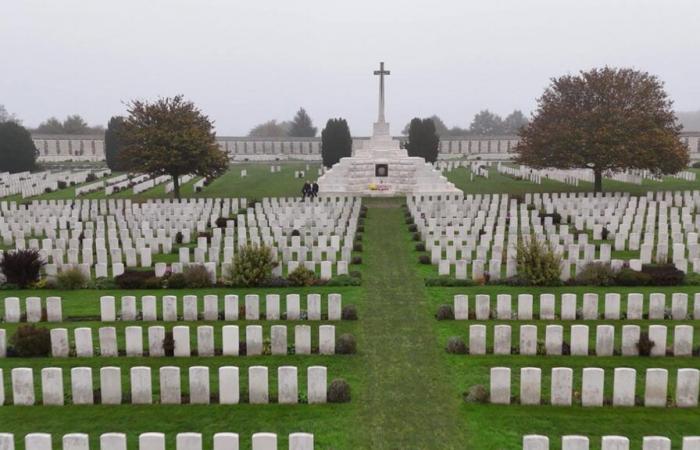More than a century later, the devastation of the First World War is still remembered. In Ypres, tributes take place every evening, so as to never forget the disasters of war.
10 million dead, 8 million disabled. The numbers from World War I are terrifying. They are still remembered more than a century later, but for how long?
Every evening at 8 p.m., the Last Post rings out at the Menin Gate in Ypres. A daily ritual, unchanged since 1928. In order to reflect, visitors from all over the world do not hesitate to make the trip.
“I’m from the UK, it’s spectacular. I see young people getting involved, I hope we will never lose this sense of history and respect for those we lost during this terrible period“, “I’m Canadian, I was told not to miss this, it’s a very moving experience“, say visitors.
On the walls of the gate, the names of 54,896 men who fell in battle. To honor the memory of her ancestors, this Australian traveled 17,000 kilometers, the journey of a lifetime. “They are my uncles and great-uncles. There are four of them and their names are engraved here. I come for the first time to pay homage to them“.
If these tributes take place every evening in Ypres, it is thanks to the unfailing commitment of a few volunteers. Christophe Wils lives very close to the Menin Gate. Every evening, every other week, this business manager puts on his uniform before going out to perform the Last Post ceremony.
“Once you’re there, you want it. Sometimes on Sunday evening, when it’s cold, we come home, drink a cup of soup and have to go back outside where it’s cold. Sometimes for us it’s a little difficult“, he testifies.
An unfailing commitment that has lasted for 14 years, without interruption, with well-rooted motivation. “It’s to thank the young men who came back then to help us and who fought for our freedom. It’s the only thing we can do to thank them“, he adds.
Lest we forget, Ypres, the martyr city, is trying to attract ever more tourists. Last year, more than 170,000 visitors passed through the doors of the city’s largest museum, 60% of whom came from abroad.
To remain attractive, there is no choice: you must constantly renew yourself. “A museum like ours has a lifespan of around 15 years, 15 to 17 years maximum. We are now in the 13th year, so in a few years we will have to renew everything“, explique Peter Slosse, manager du In Flanders Fields Museum.
110 years later, how can we ensure that this page of history does not fall into oblivion? To take the past beyond the textbooks, some schools organize visits.
For these young people from Brussels, this is a real wake-up call. “To forget is to deny. So, if we then deny that there is a past behind us, it’s a bit stupid. We might as well become aware of what we had before to understand what the world is, what it has become today. Forget, we must not“, explains a student.
ypres armistice first world war






